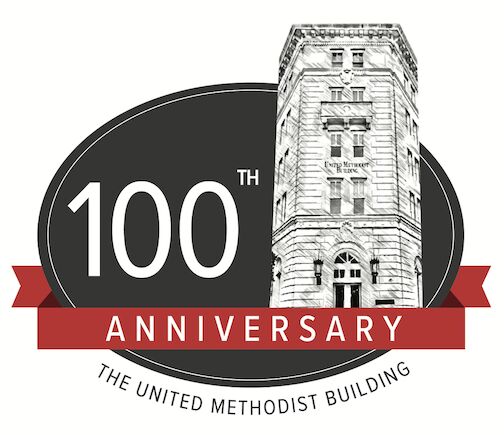ON THIS DAY - Supreme Court Justice Harry Blackmun Delivers Speech at The United Methodist Building
On Oct. 21, 1973, one-hundred and fifty people attended a service in the United Methodist Building’s Simpson Memorial Chapel celebrating the building's 50th anniversary with United Methodist and Associate Justice Harry A. Blackmun of the U.S. Supreme Court.

On Oct. 21, 1973, one-hundred and fifty people attended a service in the United Methodist Building’s Simpson Memorial Chapel celebrating the 50th anniversary of the building. United Methodist and Associate Justice Harry A. Blackmun of the U.S. Supreme Court offered the keynote address that day.
In his address “Reflections on Morality and the Law,” Blackmun noted the peculiarity of celebrating the origins of the United Methodist Building relative to other buildings in Washington, D.C. “Why is this building important…and why do we note it’s origination.” Blackmun said. “Because it has been a symbol of Christian influence and concern with the process, we like to feel is self-government in the United States.”
“The United Methodist Building was born, I think, with a moral conviction and in a desire to locate a moral symbol at this place. This is not an easy task, and yet the building is still here, still symbolic and still capable of nourishing what is good and desirable and ideal to our national consciousness.” - Justice Harry A. Blackmun, Associate Justice of the Supreme Court of the United States from 1970 to 1994.

In 1970, after two of his previous nominees had been rejected by the Senate as unqualified, President Richard M. Nixon named lawyer and federal appeals court judge Harry A. Blackmun to the Supreme Court. Blackmun was unanimously confirmed by the Senate and took his seat in June 1970. He was expected to vote as a conservative constitutionalist.
In 1973, he wrote the court’s majority decision in Roe v. Wade, the landmark case in which a woman’s right to terminate a pregnancy was guaranteed under the constitutional right to privacy. While the decision cannot be construed as legally conservative, it can be seen as politically conservative, in that it followed from Blackmun’s deeply held belief in a citizen’s right to privacy without governmental interference.
Albeit there were six justices who joined with Blackmun in the majority opinion of Roe v. Wade, Blackmun was linked with and characterized by that decision for the rest of his career. In addition, he was also a strong supporter of the First Amendment, separation between church and state, and of affirmative action. Towards the end of his career, he also opposed the death penalty.
During his United Methodist Building address, Justice Blackmun argued that morality and the law overlap but are not identical in their nature. “The Law is conscribed by the Constitution, the statutes and the enunciated case law. The moral society has its developed precepts, its Wisdom, in the broad and fundamental sense of that term, and its Scriptures, non-Christian and Christian. The development of morality is necessarily always expanding and changes with the generations. The Law cannot escape the influence of morality as it is part of what shapes attitudes,” Blackmun said.
In fact, he argued that the law, while a distinct entity, “cannot be understood without paying attention to its moral base. In practical terms, what the law is will always depend to some extent on what the law ought to be.”
See the article “Remembering Justice Harry Blackmun” HERE, written by retired UMC Rev. Jim Harnish.
Note: Speech excerpts came from the Library of Congress: Blackmun, Harry A. (1908-1999), “Reflections on Morality and the Law.,” Oct. 21, 1973, MSS84430, Box 1521, Folder 9, Harry A. Blackmun Papers, 1913-2001, Manuscript Division, Library of Congress. Washington, D.C. View full manuscript here.
United Methodist Building Anniversary Resources and Announcements

The United Methodist Building’s 100th Anniversary Celebration Event happened on September 26, 2024. The event was live streamed and featured Dr. Jericho Brown, Pulitzer Prize winning poet and the 2024 MacArthur Foundation ‘Genius Grant’, special guest speakers, musicians, and young voices committed to social justice. Click HERE to view the live stream.
To watch four new United Methodist Building video shorts “Celebrating 100 Years of Social Witness,” and for information on the year of celebration click here.
To purchase the 2024 United Methodist Building historical book written by Dr. Jessica M. Smith, For Justice and Enduring Peace: One Hundred Years of Social Witness, visit Cokesbury Publishing.
ON THIS DAY SERIES… Each month in 2024, Church and Society is highlighting notable days offering glimpses into the momentous 100-year history of the United Methodist Building (1924 - 2024) and the people called Methodists often walking along side ecumenical partners living their faith through social witness.